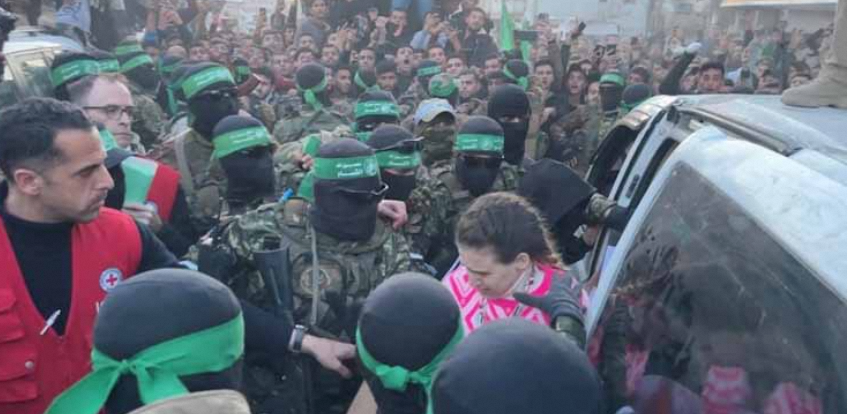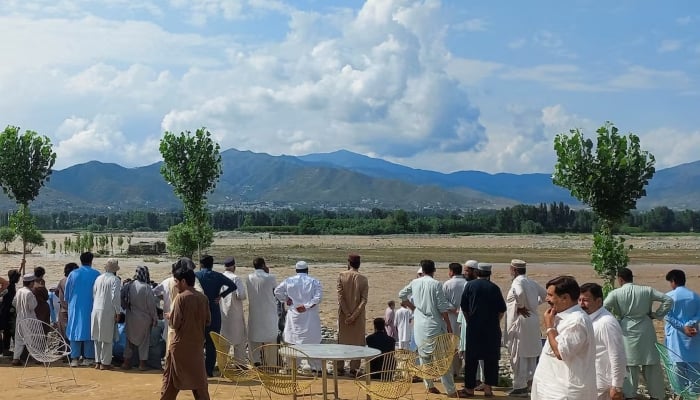The delicate ceasefire between Israel and Hamas faces renewed tension as recent developments threaten its stability. Hamas has expressed that President Trump’s recent threats toward Gaza could jeopardize the ongoing truce. This situation underscores the fragility of peace efforts in the region.
Background of the Ceasefire Agreement
In January 2025, after prolonged negotiations, a ceasefire was established between Israel and Hamas, aiming to halt hostilities and facilitate humanitarian aid in Gaza. A key component of this agreement was the exchange of hostages held by Hamas for Palestinian prisoners in Israeli custody. The truce brought a temporary respite to the conflict-ridden region, allowing for the delivery of much-needed assistance to Gaza’s civilian population.
President Trump’s Ultimatum
Tensions escalated when President Trump issued a stern warning to Hamas, demanding the immediate release of all hostages. He set a deadline, stating that failure to comply would result in severe consequences. Trump’s ultimatum was clear: if all hostages were not returned by the specified time, the ceasefire would be considered null, and military actions could resume.
Hamas’s Response
In reaction to President Trump’s threats, Hamas warned that any escalation of aggression by Israel could lead to dire consequences for the hostages. They emphasized that the safety of the captives could not be guaranteed if military actions intensified. This response highlighted the precarious nature of the situation and the potential for rapid deterioration if diplomatic efforts failed.
Secret U.S.-Hamas Negotiations
Amidst the public exchanges, reports emerged of covert discussions between the U.S. and Hamas. These talks, led by U.S. envoy Adam Boehler in Doha, aimed to secure the release of American hostages and ensure the continuation of the ceasefire. The revelation of these negotiations surprised Israeli officials, particularly Prime Minister Benjamin Netanyahu, who were reportedly unaware of the U.S.’s direct engagement with Hamas.
Israel’s Position
Israel expressed concerns over the U.S.’s secret negotiations with Hamas, fearing that such talks could undermine their own strategic interests and the existing ceasefire framework. Prime Minister Netanyahu was particularly apprehensive about potential outcomes that might not align with Israel’s objectives, especially regarding the terms of prisoner exchanges and the broader implications for regional security.
Humanitarian Concerns
The ongoing conflict and the fragile ceasefire have had significant humanitarian implications. The blockade of aid to Gaza has exacerbated the suffering of civilians, leading to international calls for unimpeded humanitarian access. Organizations have warned of a looming crisis if relief efforts continue to be hindered, emphasizing the need for sustained peace to address the dire needs of the population.
International Reactions
The international community has closely monitored the developments, with various nations and organizations expressing concern over the potential collapse of the ceasefire. There have been calls for restraint and renewed diplomatic efforts to prevent a return to full-scale conflict. The U.S.’s direct engagement with Hamas marks a notable shift in its Middle East policy, reflecting the complexities of the situation and the challenges in navigating the path to lasting peace.
Conclusion
The recent exchanges between President Trump and Hamas have brought the fragility of the Israel-Hamas ceasefire into sharp focus. While efforts continue behind the scenes to maintain peace and secure the release of hostages, the situation remains volatile. The interplay of public threats, secret negotiations, and regional dynamics underscores the intricate challenges in achieving a durable resolution to the conflict. As the world watches, the hope is that diplomacy will prevail, ensuring stability and relief for the affected populations.
Topics #featured #News #trending pakistan




